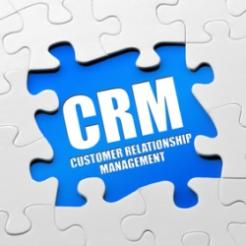Customer Relationship Management, or CRM, isn't a programme, it's a mindset, says Azadi Sheridan.
CRM, CRM: so good they named it twice, in the charity sector at any rate.
My CRM isn’t cause-related marketing but customer or constituent relationship management. You’d probably have guessed that already, given that I’m the chair of the Institute of Fundraising’s Technology Special Interest Group. At which point, I can hear many of you saying CRM is just for huge organisations – but hold on!
Certainly you can invest in large, complex CRMs for organisational change, operational efficiencies and detailed data insight. But that’s not always an option, especially for many smaller charities. But I trust that you, and most charities, have access to Excel or a similar spreadsheet package? Even an Excel spreadsheet can be a CRM system if used by an organisation that thinks with a CRM mindset.
A spreadsheet can serve as your charity’s CRM system, provided it is based on agreed business processes and an organisational understanding of how it should be used. It should ensure that essential data is stored and updated in one place, and that relevant people have access to the data or parts of it that they need and will improve their work.
You’ll notice that I’ve mentioned just one brand name so far, and not an obvious CRM vendor. CRM isn’t purely about technology, but about processes and organisations that are clear in what they want to achieve. Without this, whichever CRM system you choose will probably just perpetuate whatever internal problems over data you already have; it’ll just do it faster.
There is a refreshing absence of CRM brand names in a new publication from the Institute of Fundraising, Acevo and CFDG, CRM Implementation, which is free to these groups’ members. It doesn’t focus only on the bigger systems, preferring to describe CRM as a necessary and useful method of organisation management and I applaud this acknowledgement of CRM at sector level.
In fact, the publication addresses another popular misconception about CRM: its authors rightly argue that CRM is not only about fundraising. The single view can support the entire organisation – service delivery, finance, volunteer management and so on. In short, it is a tool to help optimise efficiency and knowledge and to support intelligent decision-making.
So, if CRM matters for all organisations, irrespective of size and supports more than just fundraising, what are its key elements?
When thinking about what kind of CRM to adopt, it is essential to see your organisation’s data from the point of view of the customer. How can your processes be improved to help your donors, beneficiaries or volunteers? Have you asked them?
Start with the simple, fundamental processes, and build out from there. The bigger CRM systems are hugely sophisticated, but the smaller charity can usually avoid the expense of this, starting out with something they can grow with. Say, overlapping data from a donor mailing database with a helpline or even complaints management process where any additional information will be of benefit.
That said, some functions that used to be desirable add-ons, have now become essential. Today, digital communications are a must-have and your presence online, website, email , mobile etc, has to be part of your CRM plan. But don’t bloat your CRM system (and waste precious income) by demanding these if you don’t do them yet.
So, CRM is not only possible for all charities but ever more necessary. The biggest and first challenge is to be absolutely clear about what your organisation wants and needs to do with all its data, not just fundraising data. If you’re honest about this, and realistic about what you can achieve, the technology choice will be easier and the positive impact on your organisation much greater.
Azadi Sheridan is practice manager at Blackbaud Europe









